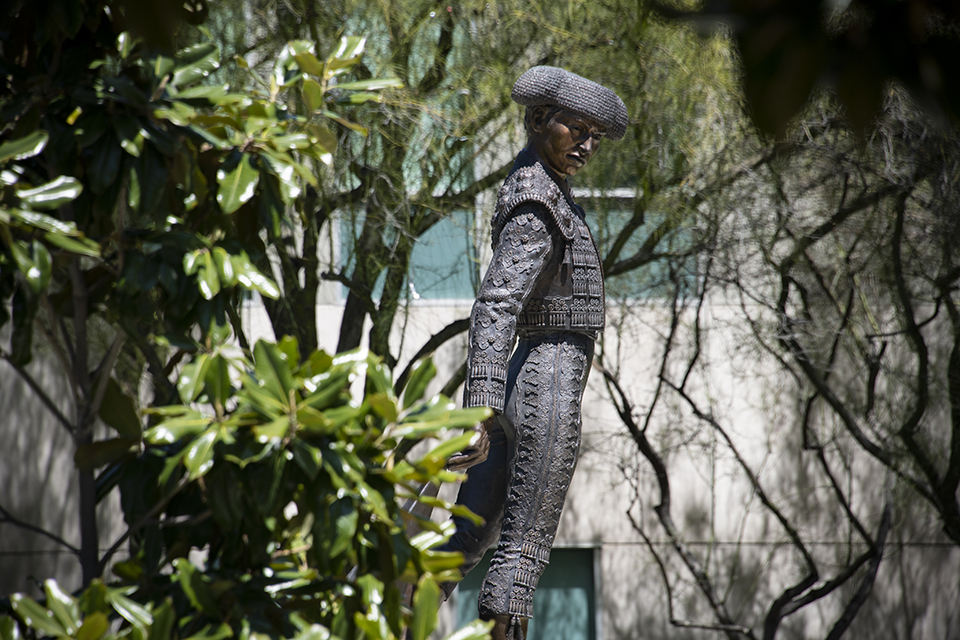CSUN to Offer an Interdisciplinary Master’s Degree in Sustainability

CSUN is launching an interdisciplinary master’s degree in sustainability in fall 2022. Photo by Lee Choo.
Issues surrounding sustainability impact every aspect of our lives, from business and health care to community well-being to implementing practical strategies for energy and water resources. To be successful, sustainability professionals need to have a solid understanding of the topic and the ability to communicate effectively to a variety of audiences.
California State University, Northridge is launching an interdisciplinary master’s degree in sustainability, set to begin fall 2022, to ensure that those working in the field share a common language and understanding of how issues concerning sustainability affect the environment, economy and society.
“The tough thing about sustainability is that we often have different voices because we’re not specifically trained in, say, math or the sciences, or, if we’re community advocates, on how to communicate to the community the science of sustainability,” said CSUN geography professor Amalie Orme, director of the new program, which will be housed in CSUN’s College of Social and Behavioral Sciences. “We need to be able to communicate to everyone, regardless of our employment, if we are going to be effective leaders in the area of sustainability. We must have a common language and a strong foundation in our fields of study if we are going to make positive and productive change. This program is designed to develop that common language, while acquiring skillsets vital to the field of sustainability.”
Yan Searcy, dean of the College of Social and Behavioral Sciences, said he believes the master’s program will become a model for sustainability in higher education across the country.
“It allows people who really want to do something about sustainability to find an area that is right for them,” he said.
“The M.A. in Sustainability is providing a core understanding of sustainability that will allow them to communicate and work in a variety of sectors,” Searcy said. “Though the program provides a comprehensive foundation, there are four specialty tracks that reflect the broadness of practice areas and interests in sustainability — science, business, social justice and public policy.”
Searcy added that the program is quite student focused, “there will also be opportunities for students to work in concert with the CSUN Institute for Sustainability and be engaged with industry and community.”
Among the program’s goals are to train students who can develop strategies for addressing and mitigating problems in water resources and energy use; address sustainability in a business environment; help find resolutions to social and environmental challenges and inequities; and to develop and implement public policies addressing sustainability issues.
The program will be a cohort-based learning experience. Its core curriculum is designed to develop a common language in sustainability practice, while supporting students in one of four areas of specialization: environmental science, water resources and technology; community well-being and social justice; corporate sustainability; and sustainability policy and government.
“Faculty from every corner of the campus will be contributing to the program – including nearly every department in the College of Social and Behavioral Sciences; geology and chemistry in the College of Science and Mathematics; civil engineering; manufacturing engineering, computer science in the College of Engineering and Computer Science; family and consumer sciences, environmental health, and recreation and tourism in the College of Health and Human Development; art and journalism in the Mike Curb College of Arts, Media, and Communication; philosophy and Chicana/o studies in the College of Humanities; and marketing in the David Nazarian College of Business and Economics.
“The list goes on because sustainability impacts every aspect of our lives,” Orme said.
“It’s important that the students understand how encompassing issues of sustainability are,” she said, “so that when they are in the real world, they understand how their actions — whether they are in business, are policymakers, are scientists or are working in the community — have impact well beyond the organization for which they work.”
Orme said graduates of the program could find employment in the public and private sectors as environmental technicians and engineers, community and regional planners, environmental restoration specialists, water and wastewater engineers, climate scientists, landscape architects, sustainable food and health specialists, and business and management designers and analysts for sustainable communities.
“This is a new and growing field, and demands for people trained in sustainability are only increasing as both the public and private sector grapple with the effects of a planet experiencing climate change, which will affect everyone,” she said.

 experience
experience